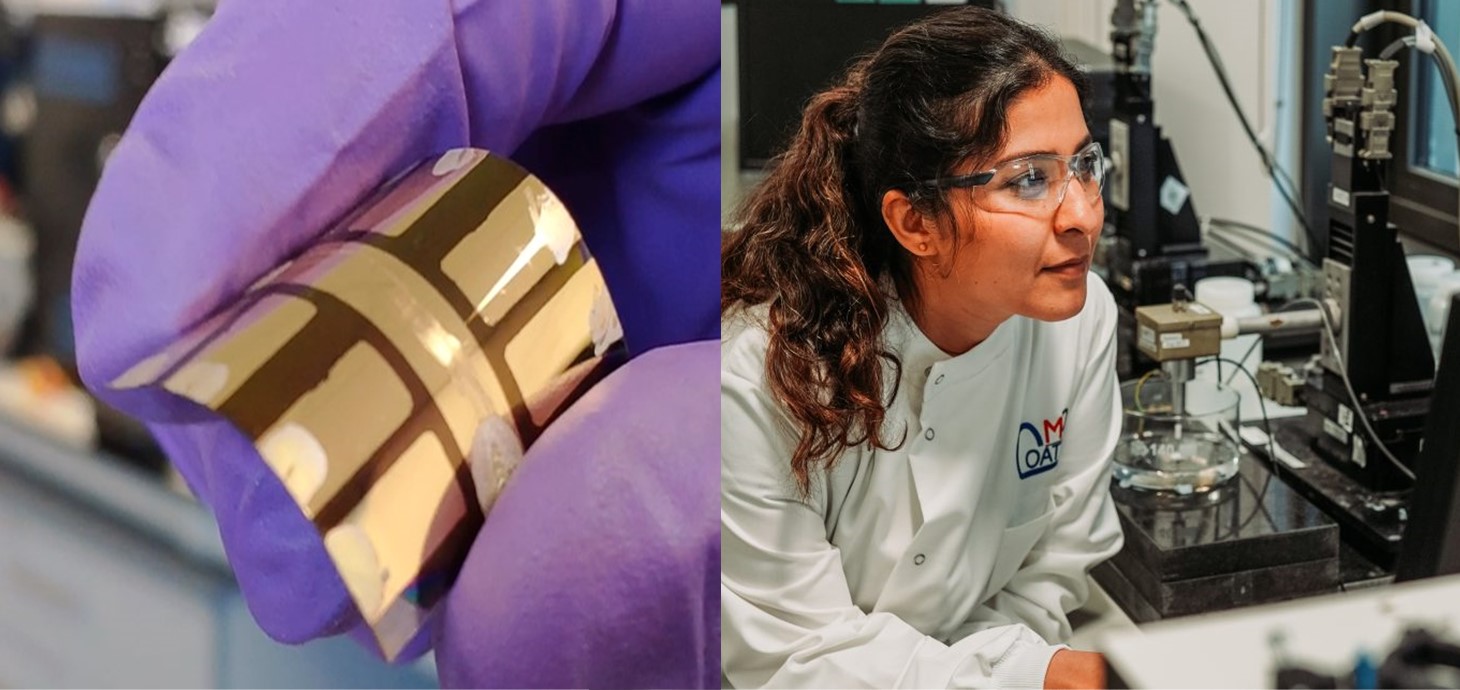
Two examples illustrate what is at stake, says Professor Paul Boyle. SPECIFIC are developing technologies such as printable flexible solar cells (left), and the Materials and Manufacturing Academy (M2A - right) creates the future leaders of Welsh industry through industry-sponsored postgraduate research.
We are on the precipice of a disaster for research and innovation in Wales, which only the UK Government can now prevent.
Weeks from now, we will begin to see EU funding cease for many major research projects in Wales, which will impact jobs, talent, and local innovation and skills capability. And while this is a UK-wide issue, the impact on Swansea and Wales will be especially severe, given the comparatively high level of funding from which we have benefited in the past.
This year, the UK as a whole will lose access to many large-scale European Union funding programmes in the wake of the UK’s withdrawal from the EU. More than 50 projects either led by or involving Swansea University and which have been supported by EU funding, are now at risk, with over 240 highly skilled jobs under immediate threat here in Swansea.
We are very concerned for the many colleagues whose posts are at risk and, more broadly, the closure of these projects will seriously and irreparably damage Wales’ research and innovation sector. Large-scale EU funding opportunities have enabled universities and businesses in Wales to work collaboratively and creatively to address the challenges facing our society, which – until now – has led to Wales punching well above its weight in terms of our research impact.
The UK Government has made a commitment to replace lost EU funding, to be distributed through the UK Shared Prosperity Scheme (UKSPF), which will award £2.6 billion of local investment across the UK by March 2025. The arguments against the structure of this funding have been well rehearsed by others. But it remains a major problem that the mechanism for distributing these funds locally makes securing funding for large-scale collaboration at cross-regional and pan-Wales scale almost impossible.
Many of the projects at risk also provide high-quality skills training to Welsh business. They encourage growth in local employment and productivity, which is all the more vital in areas of economic disadvantage within the Welsh regions. Perversely, they include pioneering work in areas of innovation which the UK Government has rightly identified as top priority, such as digital transformation and the push for Net Zero.
Two examples from Swansea illustrate what is at stake. SPECIFIC is an energy technology research and innovation centre which creates buildings that generate, store and release their own power from solar energy. Our researchers are developing technologies such as printable solar cells and material that stores summer heat to use in winter, have created seven spinout companies and work with hundreds of businesses and partners.
Their work addresses both the energy crisis and the climate emergency simultaneously, while championing innovation here in Wales; it is hard to imagine a more timely and vital project. Yet the long-term future of SPECIFIC remains under threat. These are the people that are leading the charge to Net Zero, and we are at risk of losing them – and 15 years’ worth of innovation – just when we have never needed them more.
Another project at risk is our Materials and Manufacturing Academy (M2A), which creates the future leaders of Welsh industry through industry-sponsored postgraduate research. Should M2A be forced to close due to lack of funding, critical knowledge exchange between industry and academia within materials and manufacturing will be severely harmed, which will have a deleterious effect on this sector of our economy. There will be fewer opportunities for Swansea University students to work alongside industry, secure jobs and remain in Wales, leading to a damaging brain drain.
With the cliff edge looming for this activity, we urgently need a safety net in the form of immediate replacement funding for at-risk projects such as these, and the many others under threat in Wales. Now is the time for the UK Government to mitigate the damage that is about to be inflicted upon our research, innovation and industrial sectors and give us the short-term support required to protect these valuable projects in Wales.
